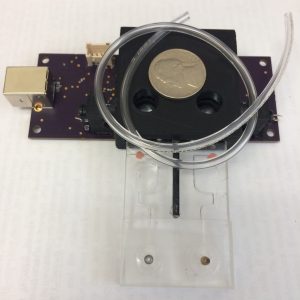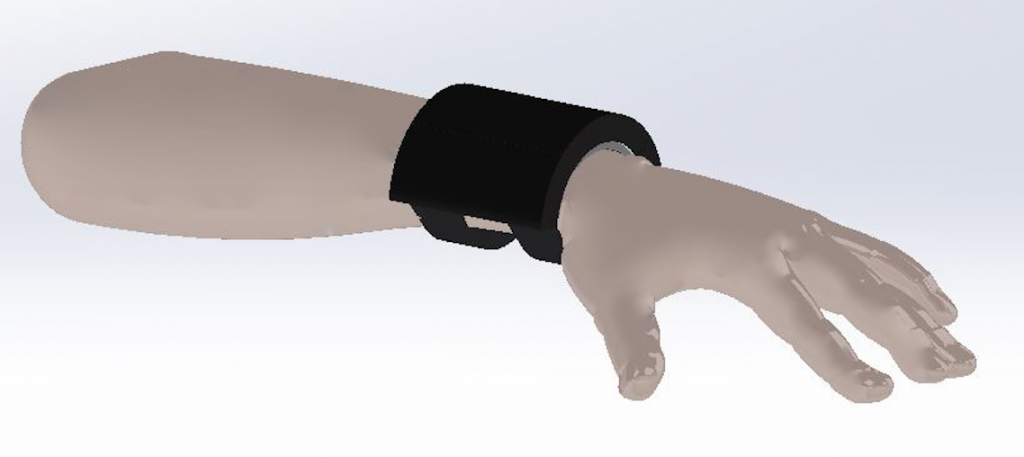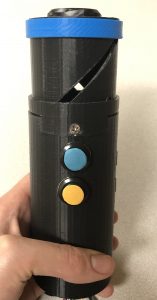 ASTEK
ASTEK
University of Maryland Baltimore County
1st Prize ($10,000)
Rapid detection of bacterial presence in blood, in combination with antibiotic susceptibility, is essential in treatment of blood stream bacterial infections. ASTEK is a device that identifies both bacterial presence and sensitivity to antibiotics in less than one hour. The approach relies on the isolation of bacteria from whole blood using a mosquito inspired microfluidic device, with subsequent visualization of the viable bacteria using fluorescent indicator. The result is quantified using a customized fluorimeter and the results are displayed on a user-friendly graphical user interface.
Team Members:
Mustafa Al-Adhami
David Burgenson
Benjamin Punshon-Smith
Collaborators:
Dr. Govind Rao, Faculty Advisor
Dr. Yordan Kostov, Advisor
Dr. Alan Cross, Clinical Mentor
Dr. Marcus Zupan, Advisor
Dr. Charles Montague, Business Mentor
Dr. David Fink, Business Mentor
Alex. Brown Center for Entrepreneurship
The Center for Advanced Sensor Technology
Minimize

University of Pennsylvania
2nd Prize ($5,000)
Essential Tremor (ET) and Parkinson’s Disease (PD) are the two most common movement disorders, with 80 million and 10 million worldwide sufferers respectively. Both disorders are characterized by debilitating hand tremors, which can render everyday tasks impossible and cause psychological distress. Patients have limited options for coping with these tremors. Minimize is a bracelet-like device that uses tuned mass dampers and reduces tremors by up to 95%. It is aesthetically discrete, useful for everyday activities, and effective for most patients.
Team Members:
Aneri Kinariwalla
Maanav Narula
Collaborator:
Prof. Jeffrey Babin, Faculty Advisor
 KalEYEdoscope: An accessible, affordable solution
KalEYEdoscope: An accessible, affordable solution
to remote AMD Tracking
University of Michigan
3rd Prize ($2,500)
Age-related macular degeneration (AMD) is a degenerative disease of the retina and the leading cause of adult blindness in industrialized countries. There are currently no effective at-home monitoring solutions for AMD. The KalEYEdoscope is a handheld digital device that delivers at-home monitoring of AMD. The device is designed to accurately identify spontaneous and acute worsening of AMD while being seamlessly incorporated into the user’s daily routine.
Team Members:
Jacob Lutz
Vichal Muthanna
Mario Russo
Rachel Sun
Andrew Yu
Collaborator:
Dr. Matt Gibson, Faculty Advisor